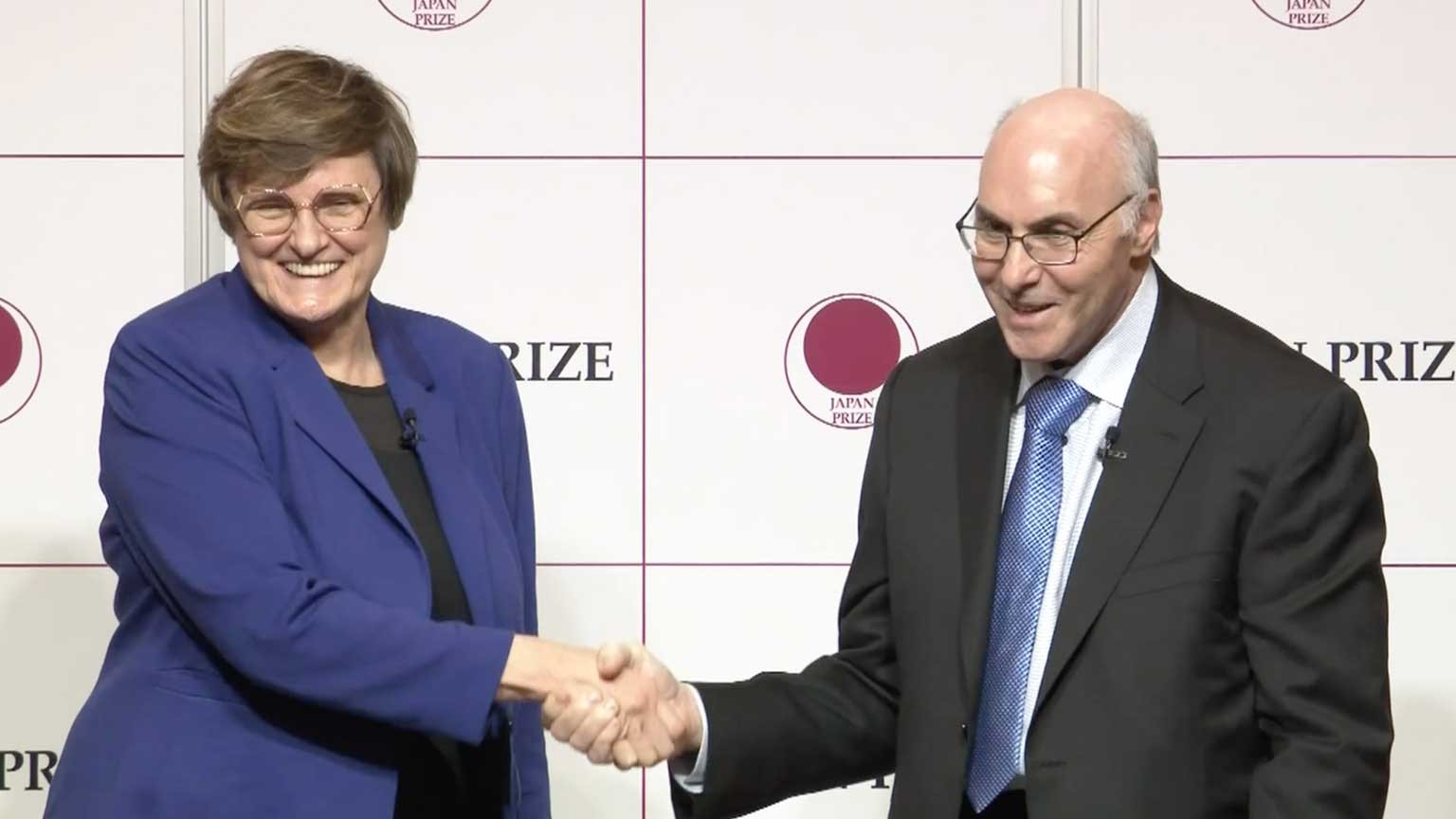Research by Kariko and Weissman led to the creation of mRNA vaccines. Messenger RNA carries instructions that help cells defend against infection.
"We worked hard, but we enjoyed it," Kariko said at a news conference. "It's not coming easy, but it is fun. And we do it with great happiness."
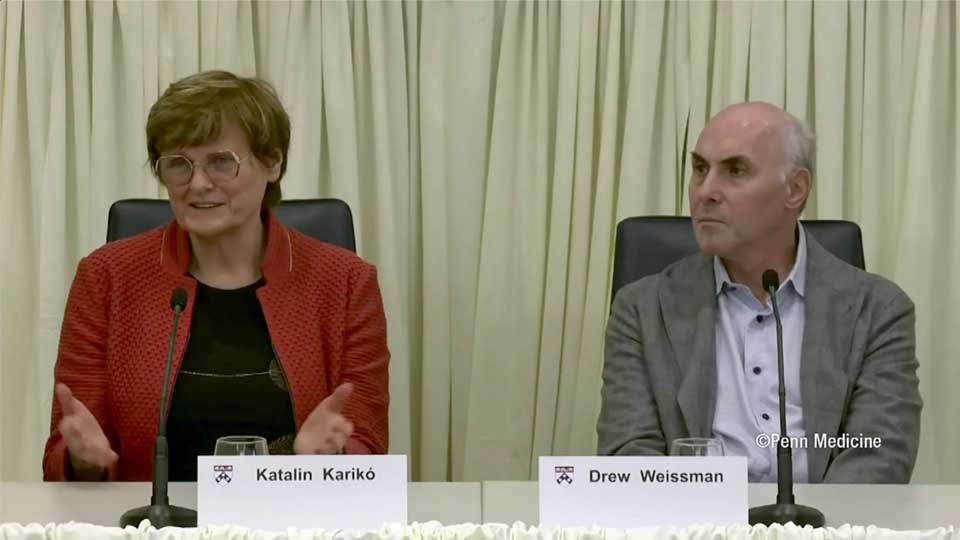
The pair met at a photocopier at the University of Pennsylvania more than 20 years ago.
"We never gave up," Weissman said. "We just kept persevering and kept working at it and here we are today."
They say they hope that one day such vaccines can even help protect against cancer and other deadly diseases.
A long and winding road
The Nobel Assembly says their findings "fundamentally changed our understanding of how mRNA interacts with our immune system" and that the work "contributed to the unprecedented rate of vaccine development during one of the greatest threats to human health in modern times."
But many challenging years passed before their research saw the light of day.
A postdoctoral researcher at the time, Kariko left Hungary for the United States in 1985 after losing financial support amid the country's economic downturn.
Because Hungary strictly limited the amount of money that could be taken abroad, she was forced to hide her meager savings in her daughter's stuffed toy.
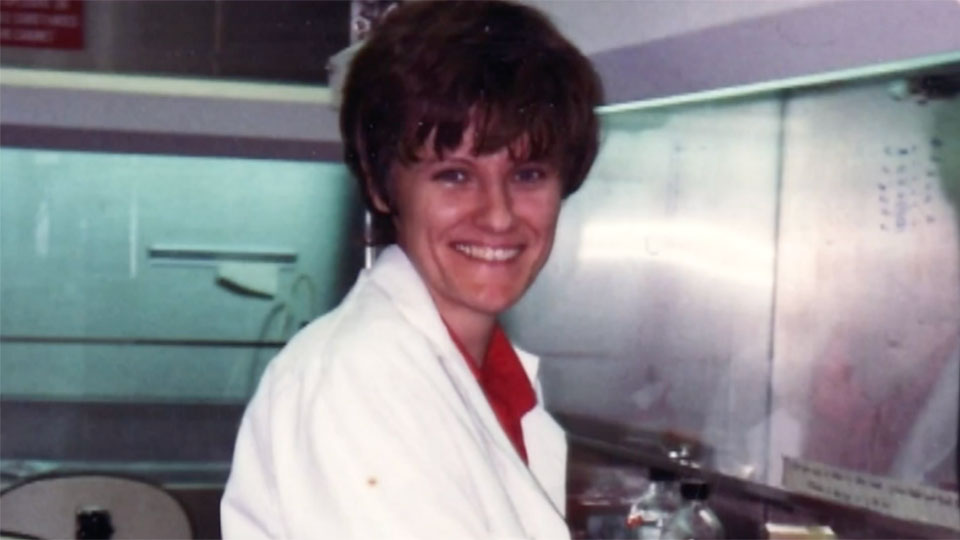
Kariko landed a new position conducting postdoctoral research at Temple University in Philadelphia. But because the potential of her mRNA research was largely unrecognized, she faced difficulties getting funding.
After becoming an assistant professor at the University of Pennsylvania in the early 1990s, Kariko began collaborating on research with Weissman.
They jointly published their groundbreaking discovery in 2005, but it drew little attention at the time.
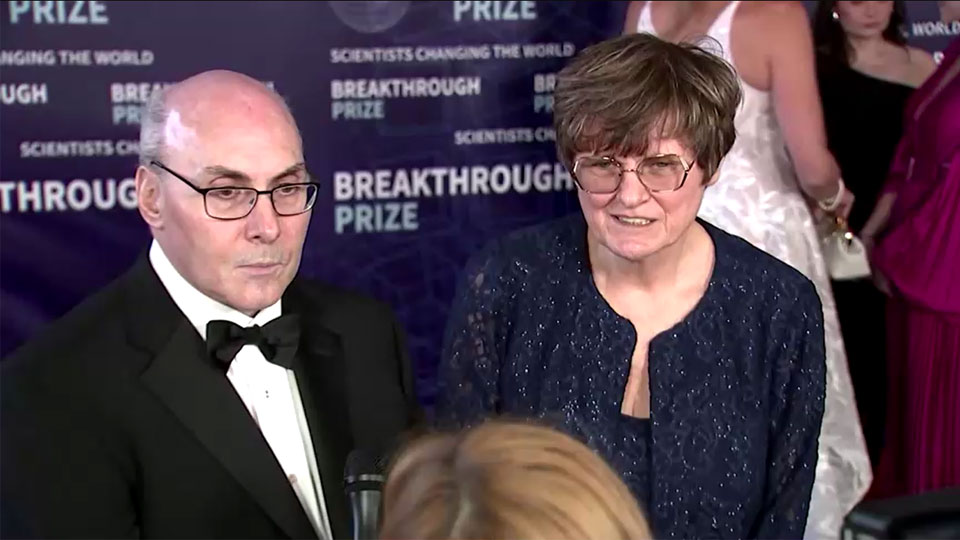
Eventually, however, German company BioNTech recognized the potential of their research.
By late 2020, less than a year into the coronavirus pandemic, mRNA vaccines began being distributed to the general public in many countries.
Researcher hails Kariko as 'extremely courageous'
Professor Itaka Keiji of Tokyo Medical and Dental University, who is also involved in the development of mRNA-based drugs, has been greatly influenced by his research interactions with Kariko.
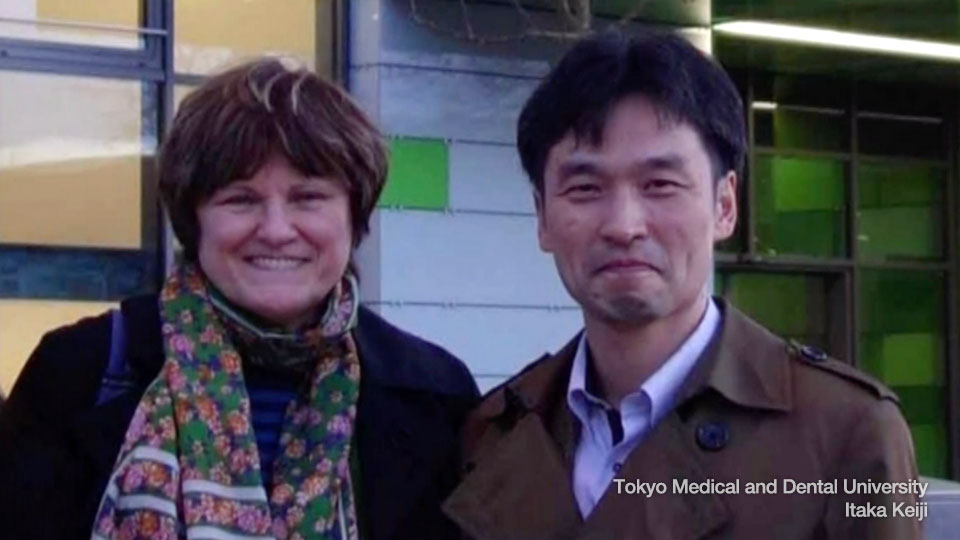
Itaka describes Kariko as "extremely courageous" because she believed in the medical potential of mRNA and strived to carry out research at a time when few people thought the technology could be used for vaccines.
Itaka says Kariko is a friendly person who doesn't hesitate to share her knowhow with other researchers. He says she happily taught him how to conduct experiments in an open matter when they met at an academic conference.
"It wouldn't be an exaggeration to say that researchers around the world have benefited from her techniques and can now use mRNA for vaccines."
